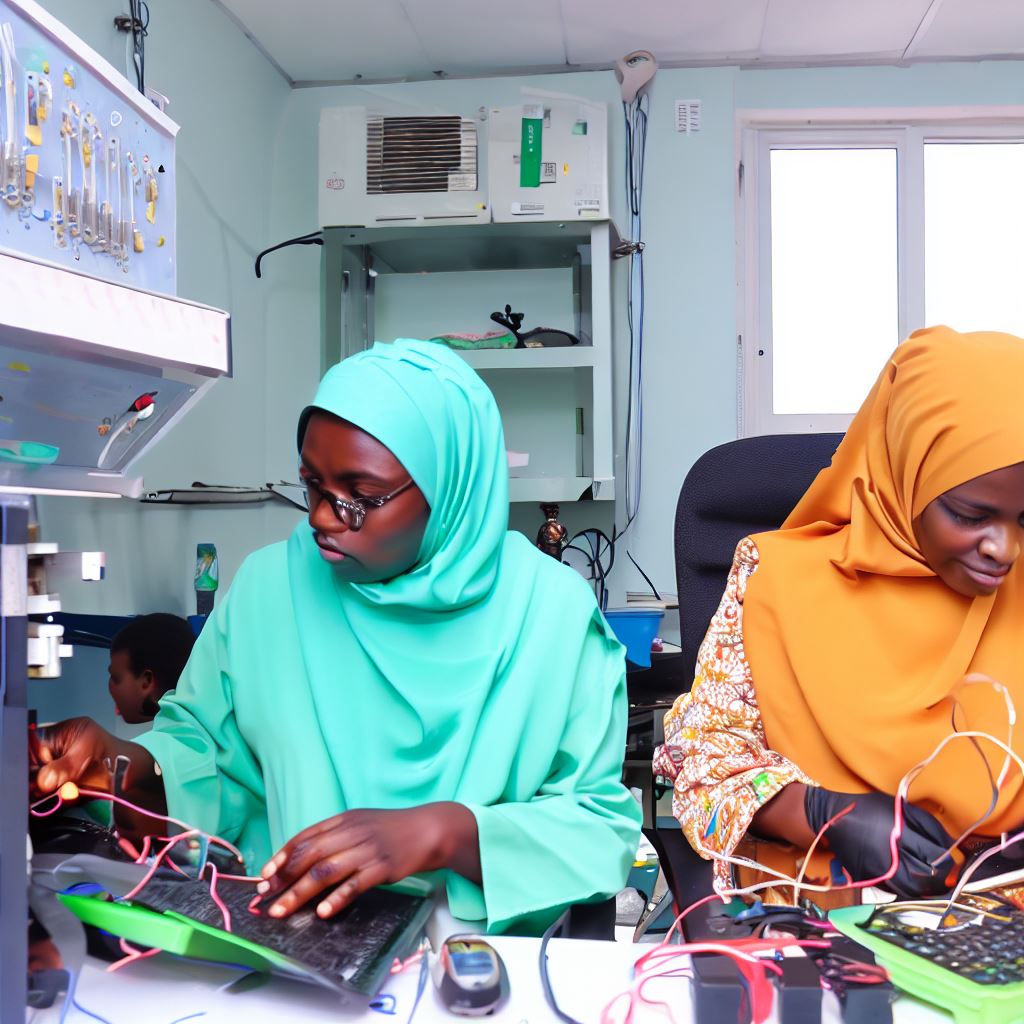Introduction
Let’s explore School Librarians Duties and Challenges.
Introducing Nigeria’s School Librarians: Vital contributors to education, facing unique challenges in their roles.
Duties of Nigeria’s School Librarians
- Cataloging and Organizing Resources: School librarians meticulously organize books, digital materials, and resources.
- Assisting Students and Teachers: They provide guidance in research, helping both students and educators find valuable information.
- Promoting Literacy: Librarians foster a reading culture, organizing reading programs and recommending books.
- Curating Diverse Collections: They select materials that cater to various learning styles and interests.
- Information Literacy Instruction: School librarians teach students crucial skills for evaluating and using information effectively.
- Tech Integration: They facilitate the integration of technology into learning, promoting digital literacy.
- Collaborating with Educators: Librarians work closely with teachers to support curriculum needs.
- Creating a Learning Environment: They maintain a welcoming space that encourages exploration and learning.
Navigating these duties while addressing unique challenges is crucial for enhancing education in Nigeria.
Read: Libraries in Nigeria: Librarian’s Role and Influence
Challenges Faced by Nigeria’s School Librarians
Lack of Funding and Resources
- The inadequate funding allocated to school libraries in Nigeria hinders their development and growth.
- There is a scarcity of resources such as books, computers, and technology in these libraries.
- Without proper funding, school librarians struggle to provide quality resources to students.
- This lack of resources limits the educational opportunities available to students.
Insufficient Staffing
- Understaffed school libraries in Nigeria are a major challenge for librarians.
- With a shortage of librarians, the quality and efficiency of library services suffer.
- Librarians are burdened with a heavy workload, making it difficult to meet the needs of all students.
- The lack of sufficient staff also limits the librarians’ ability to provide personalized assistance to students.
Technological Challenges
- School librarians in Nigeria face difficulties in implementing digital systems due to various factors.
- The limited access to computers, internet connectivity, and other technological resources hampers their work.
- Without adequate technology, librarians struggle to provide students with modern learning experiences.
- The rapid advancement of technology makes it challenging for librarians to keep up with new tools and resources.
Limited Support and Recognition
- Unfortunately, school librarians in Nigeria often face a lack of acknowledgment and support.
- Their role as integral educational contributors is not given the recognition it deserves.
- Proper support from educational institutions and policymakers is crucial for the success of school libraries.
- Acknowledging the importance of librarians can lead to improved resources and services for students.
Basically, Nigeria’s school librarians encounter several challenges that impede their ability to provide optimal library services.
The inadequate funding allocated to school libraries limits their access to essential resources such as books, computers, and technology.
Additionally, the understaffing of school libraries affects the quality and efficiency of the services provided to students.
The lack of technological advancements further hampers the librarians’ ability to implement digital systems and provide modern learning experiences.
Moreover, the limited support and recognition for school librarians highlight the need for acknowledgment from educational institutions and policymakers.
By addressing these challenges and providing necessary support, Nigeria can enhance its school library system and contribute to the educational development of its students.
Read: Digital Libraries in Nigeria: The Librarian’s Role
Impacts of Duties and Challenges
Effect on Student Learning
- Analyze how the duties performed by school librarians contribute to student learning outcomes.
- Explain how the existing challenges hinder the potential impact on student learning.
Role in Promoting Literacy
- Discuss the substantial role school librarians play in promoting literacy and reading culture.
- Emphasize the significance of well-stocked libraries and qualified librarians for fostering a love for reading.
School librarians profoundly influence student learning outcomes through diligent duties, nurturing an enriched educational environment.
- They guide students to relevant resources and nurture exploration.
- Librarians impart essential research skills, boosting academic performance and critical thinking.
- Challenges like limited funding and resources hinder their impact on student learning.
- Inadequate materials compromise learning quality, affecting the student experience.
- School librarians also champion literacy and cultivate a reading culture among students.
- By granting access to diverse literature and organizing reading programs, they instill strong reading habits.
- Well-stocked libraries and qualified librarians are essential for nurturing a love for reading.
- A rich book collection caters to various interests and academic levels, promoting reading engagement.
- Qualified librarians provide personalized book recommendations and guidance to students.
- They also promote digital literacy, equipping students with essential online research skills.
- In the digital age, librarians empower students to navigate online platforms effectively.
- Despite challenges, school librarians significantly contribute to students’ educational growth and love for reading.
In essence, school librarians’ roles impact student learning and literacy, fostering enriched educational environments despite challenges.
Read: Youth Engagement in Librarian Roles in Nigeria Today

Recommendations and Solutions
Increased Funding and Resource Allocation
- The need for increased funding and allocation of resources for school libraries in Nigeria cannot be overstated.
- Adequate investments in these libraries can lead to numerous positive outcomes for both students and teachers.
- Proper funding can help improve the quality and quantity of books and materials available to students, enhancing their learning experience.
- With sufficient funding, school librarians can also upgrade technology and provide access to online resources, expanding students’ knowledge and research capabilities.
- Increased allocation of resources will enable school librarians to create more dynamic and engaging spaces, fostering a love for reading and learning among students.
Professional Development and Training
- Continuous professional development and training opportunities for school librarians are essential in today’s rapidly evolving educational landscape.
- Training can enhance librarians’ abilities to meet the evolving needs of students and teachers, ensuring they remain effective and relevant.
- Librarians can gain new skills and knowledge in areas such as digital literacy, information literacy, and library management through professional development programs.
- Ongoing training can also equip librarians with the necessary skills to effectively collaborate with teachers and integrate library resources into the curriculum.
- By investing in the professional development of school librarians, Nigeria can ensure the presence of highly skilled and competent individuals in their schools’ library systems.
Collaboration and Advocacy
- Collaboration among school librarians, educators, and policymakers is crucial for the success and sustainability of school libraries in Nigeria.
- Encouraging collaboration will allow librarians to share best practices, resources, and innovative ideas to improve their services.
- Librarians can work closely with educators to support curriculum development, providing valuable resources and assisting with research projects.
- Policymakers need to be aware of the challenges faced by school librarians and the importance of their role in education.
- Advocacy efforts should focus on raising awareness about these challenges and advocating for the needs of school librarians, such as adequate funding and support from the government.
In short, addressing the duties and challenges faced by Nigeria’s school librarians requires proactive measures and investments.
Increased funding and resource allocation, along with professional development and training opportunities, are critical in ensuring school libraries meet the evolving needs of students and teachers.
Collaboration among librarians, educators, and policymakers is essential for the success and sustainability of these libraries.
By implementing these recommendations and solutions, Nigeria can strengthen its school library system and provide quality education to its students.
Read: Women in Nigeria’s Librarian Profession: Spotlight
Learn More: The Evolution of Food Science Profession in Nigeria: A History
Conclusion
In this blog post, we have explored the duties and challenges faced by Nigeria’s school librarians.
We learned that their essential role goes beyond just managing books; they also play a crucial role in fostering a love for reading and providing a safe environment for students to study.
Throughout the discussion, we highlighted the various challenges that school librarians in Nigeria face, such as insufficient funding, limited resources, and lack of professional development opportunities.
These obstacles hinder their ability to fully support the educational needs of students.
It is essential to recognize the importance of school librarians and the impact they have on students’ academic success and personal growth.
By providing access to quality books and learning materials, they contribute to building a literate and knowledgeable society.
To ensure that Nigeria’s school libraries thrive, it is crucial for readers and stakeholders to support and prioritize their improvement.
This can be done through advocating for increased funding, donating books and resources, and lobbying for professional development opportunities for librarians.
In summary, Nigeria’s school librarians play a vital role in enhancing education and promoting literacy.
Their dedication and commitment to the advancement of students’ learning should be acknowledged and appreciated.
By investing in the improvement of school libraries, we invest in the future of Nigeria’s youth.
Let us join hands and work towards creating well-equipped and vibrant libraries that empower students to reach their full potential.




